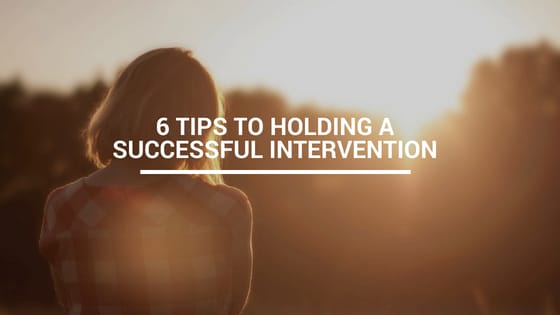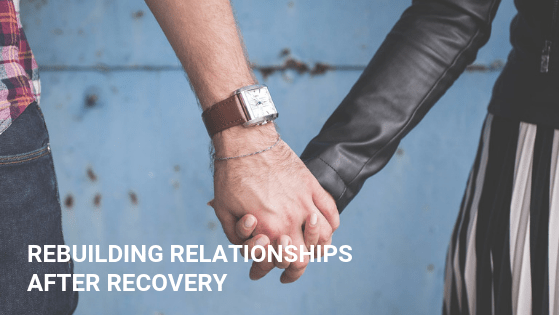
6 Tips to holding a successful intervention
Is it time for an intervention?
The classic cliché I’m sure you’ve heard many times ‘the first step on the road to recovery is admitting that there is a problem’. As you’d imagine this admission could bring up a lot of fear for most addicts. Their addiction could feel like a very comfortable place and an alternative could seem inconceivable. As a relative, partner or friend of an addict it can also be hard to accept that their behaviour is spiralling out of control and that the problem isn’t going to go away on its own.
Addiction isn’t always obvious so when is the time to step in?
Every addiction is different but there are a number of classic signs to look out for including:
- Change in physical appearance, weight loss, pinned or dilated pupils
- Isolation, lack of interest in family, friends and hobbies
- Lying about anything from their eating habits to their whereabouts
- Displaying new risky behaviors, developing unhealthy relationships
- Erratic behavior, mood swings, binge eating, irregular sleep patterns
- Neglecting responsibilities at work or home, unfulfilled obligations
- Financial trouble, borrowing or stealing money from family and friends
Once you’ve established that the individual is displaying signs of addictive behaviour the next step is to have an open and honest conversation with them. Exposing the ‘elephant in the room’ can be a very confronting experience for you both but urge them to get help and offer your support. If this doesn’t lead them to seek out the treatment they urgently need then it might be time to consider holding an intervention.
6 Tips to holding a successful intervention
- Find a trusted professional to talk to and get advice before hand. Explore the options, research treatment facilities.
- Get the right team of people together. The intervention team should always have the persons best interests at heart and be able to confront the problem head on, while coming from a place of love. The team could be a combination of close family and friends. It is important for the individual to hear the affect their addiction has on a variety of people.
- Make a plan, rehearse it and stick to it. Decide who will lead and the order in which the team will speak. Work out exactly what everyone is going to say, make it clear and concise. Use open body language, keep calm and don’t let emotions get in the way.
- Choose the best time, if they have a substance dependency, the time where they are most likely to be sober. Don’t let the addict have forewarning of the meeting, catching them off guard is key.
- Pick the location, some believe it is best to meet on mutual ground but there is also an argument for being in a familiar environment. Having control of the environment is of benefit and could be less likely to raise suspicion if they are at home. If the intervention takes place in a home environment make sure the individual can’t run off to a bathroom or bedroom.
- Have a plan for treatment, find out the cost and availability of potentially centers. If everything goes to plan you don’t want to give the addict any time to change their mind, you could be as prepared as having a bag packed to take them to a facility straight away.
An intervention can be the vital step towards recovery for any addict and executed correctly can change an individual’s life forever. At Ibiza Calm we understand the fragility of intervention scenarios and offer our expert services to help with planning and assisting in the smooth running of your intervention. We offer expert advice as well as being part of the intervention team to act as a mediator and neutral party to gain the best possible outcome for all.
Share this information, choose your platform!
Student life: alcohol and drugs
The school holidays are coming to an end. Following six weeks of having the kids at home, hanging around under your feet; after snacks and entertainment (pre-teens); or sleeping in until lunchtime then rising and grunting at you (teenagers); getting …
Rebuilding Relationships after Recovery
For those struggling with addiction, the road to recovery can be a long and challenging one. First and foremost the individual must take all the necessary steps to get sober. Acknowledgement of the addiction, getting oneself into and completing a …
Substance abuse in teenagers
The United Nations Office of Drugs and Crime (UNODC), 2021 World Drug Report stated that over 36 million people worldwide suffer from drug use disorders. The early use of substances is associated with abuse problems later in life – most …
Is alcohol a drug?
Alcohol is the intoxicating component in wine, beer, and spirits like vodka and whiskey. Yes, it is a drug. It is a psychoactive substance which means it affects the way the brain works, triggering changes in mood, perception, thoughts, feelings, …









